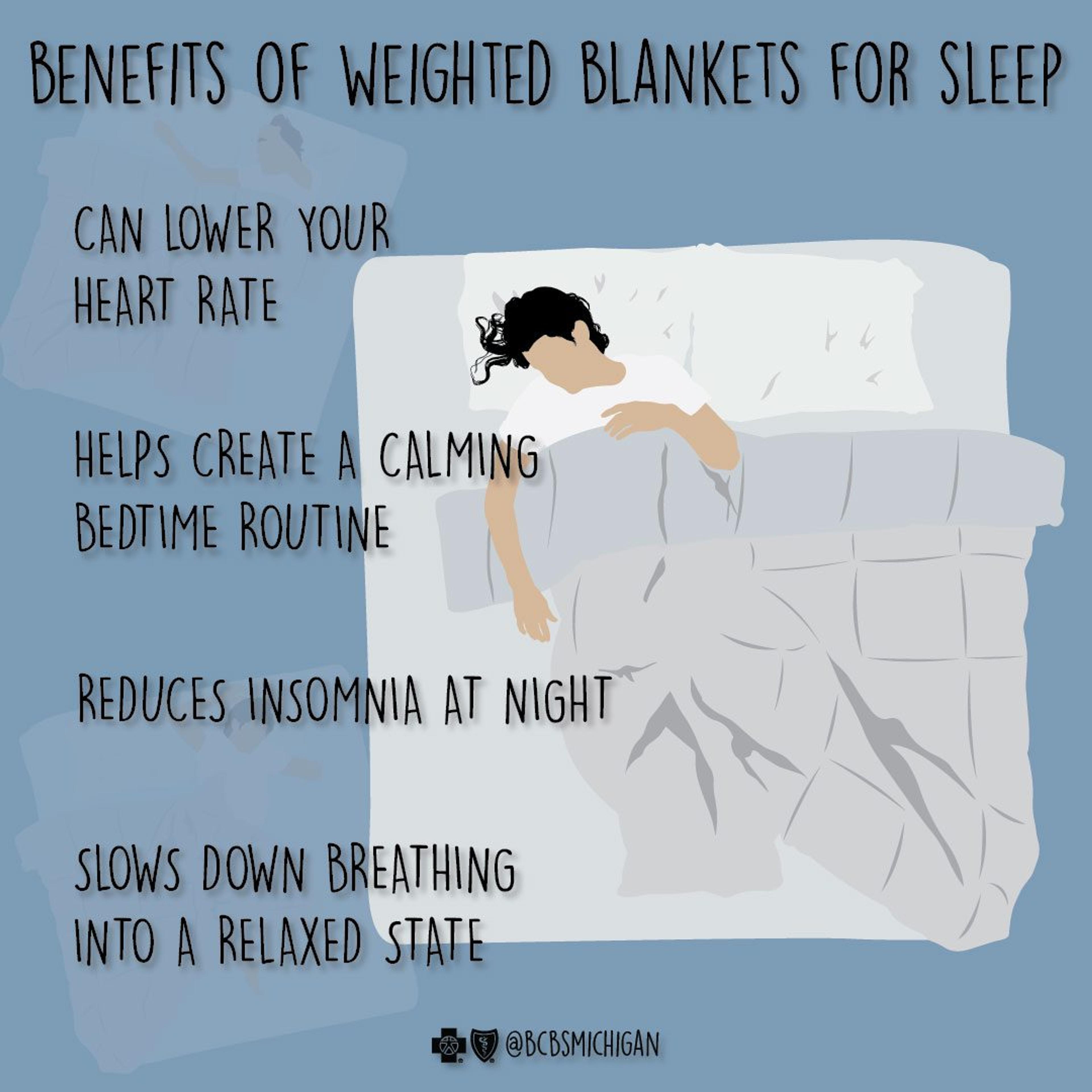Benefits of Weighted Blankets for Sleep
Shandra Martinez
| 3 min read

Snuggling under the covers can be relaxing. Settling into your favorite chair with a quilt in the evening can be cozy. But add a weighted blanket to your bedtime routine and that might be just what you never knew you needed for a better night’s sleep. Using these heavy coverings can have a whole host of benefits for your body and mind.
Weighted blankets have surged in popularity in recent years. They’re now staple for holiday gift exchanges, they line big-box store shelves and are popular items at everything from wedding showers to housewarming parties. The pandemic years made them somewhat of a must-have item, especially for people who were trying to self-soothe at home and find things to make them feel more relaxed.

What are weighted blankets?
Weighted blankets are coverings that are either made of a heavy material or have weights sewn into the fabric. Their purpose is similar to touch therapy in that the heavy feeling has a calming effect on many people.
Types of weighted blankets
These blankets come in different sizes, weights and styles. This allows you to select the type that will work best for you. According to the Sleep Foundation, these blankets can range in heft from 7 to 25 pounds. They can be lap-size blankets, or come in standard bed covering sizes like twin, queen or king.
Benefits of weighted blankets
While the benefits of weighted blankets continue to be studied, research already has shown they function as a form of “pressure therapy” and for some people spark the same relaxing reaction as being hugged tightly, or even being swaddled like an infant, according to the University of Pennsylvania Health System. Blanket users have said they can concentrate better when wearing them because the feeling of pressure allows them to shut out outside stimuli that would otherwise distract them.
Conditions that can be helped by using a weighted blanket include:
- Sleep disorders
- Anxiety
- Autism
- ADHD
Benefits for good sleep
How does adding a weighted blanket help to improve your sleep quality? It’s an important question, given that more than 40 million people in the United States have identified themselves as having long-term sleep issues. There are a few things going on with weighted blankets that can help with this, according to research:
- Weighted blankets can lower your heart rate, getting you ready for sleep.
- They can slow your breathing into a relaxed state.
- Using them at bedtime sets up a calming routine, signaling to your brain it’s time to sleep.
Recent studies have backed up these findings, according to research shared by Healthline. One study found that people who used weighted blankets later reported having less anxiety and fatigue. They also characterized themselves as having more energy during the day, and less insomnia at night.
Another study tracked people with mild insomnia for about a month and found that those who used a weighted blanket reported they’d had more comfortable sleep with less tossing and turning.
If you think a weighted blanket might be good to try, compare the prices in your local store to those online to find the best deal. And for safety reasons, they should never be used on infants or very young children.
Related:
Photo credit: Getty Images





